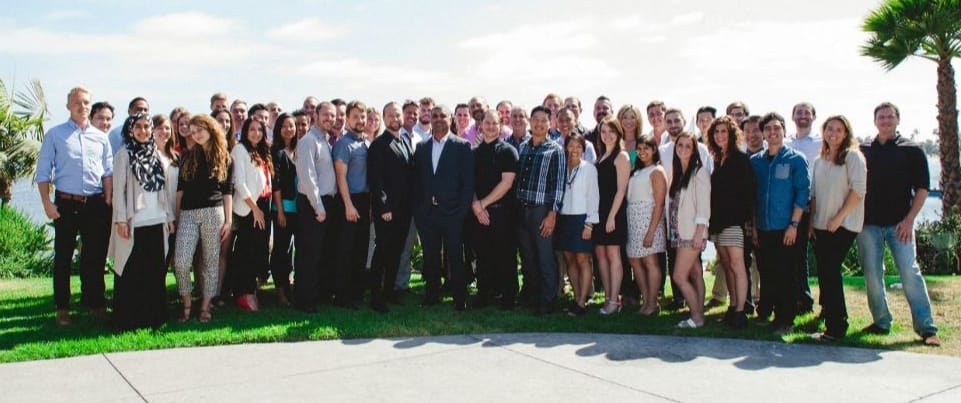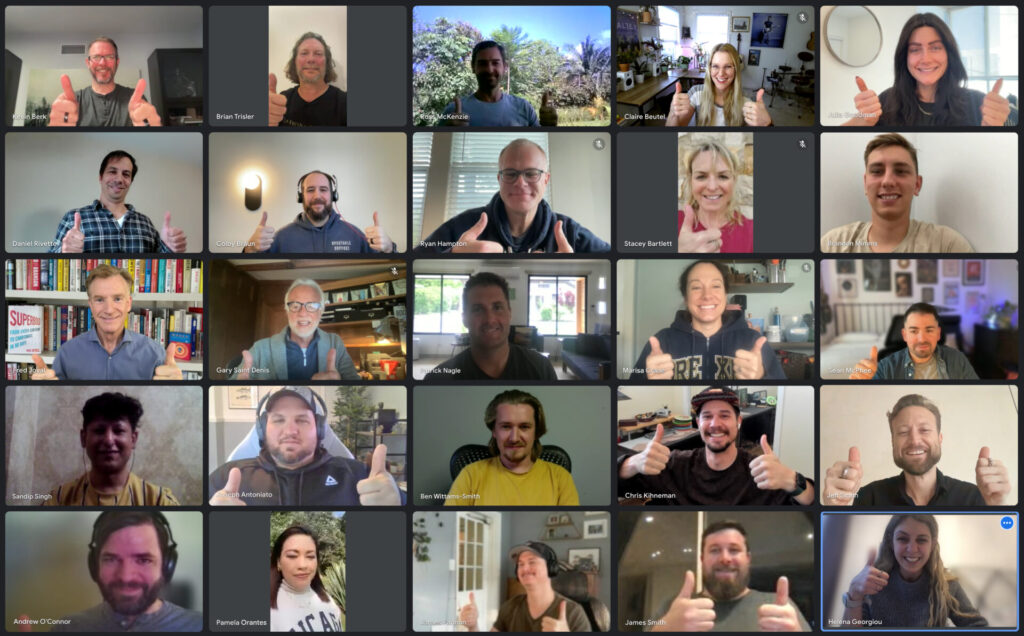A Healthy Relationship With the Digital World Is Possible
 Author:
Jeff Smith
Author:
Jeff Smith
 Editor:
Patrick Nagle
Editor:
Patrick Nagle

My Journey With MentalHealth.com
Hello everyone, I am Jeff Smith, Co-Founder and Venture Advisor at MentalHealth.com. In my first blog post, I will briefly share my background, but more importantly, we will explore some of the challenges to our mental health posed by the modern digital world, as well as discuss how, with the right approach, digital tools can be a highly positive force in our pursuit towards well-being.
With more than a decade of experience in the behavioral health and mental health field, my career has revolved around creating digital platforms that educate people about conditions or issues they may be experiencing, while also offering comprehensive directories of professionals and resources.
Collectively, my companies have provided assistance to over 100 million people seeking knowledge and support for themselves or their loved ones.

The Mental Health Impact of the Digital World
The internet has evolved, and a digital landscape has taken shape where, regrettably, there are as many harmful ways to interact with the digital world as there are beneficial and healthy ones. Technology companies have long prioritized capturing attention and controlling media content engagement for profit, often overlooking the consequences of their approach on end-user mental health.
Fortunately, people are beginning to understand that media content serves as stimuli, and that media content engagement significantly influences how you feel, impacting mental health. User engagement tactics, those devised by technology companies and delivered through feedback loops within media content environments, trigger response to stimulus and chemical reactions in your brain, often inciting your behavior by eliciting emotion – a phenomenon referred to as ‘biofeedback‘.
Media Engagement Alters Brain Neural Networks
That’s right; you have a direct and very personal relationship with every image you see, every sound you hear, and even every word you read. More than you know, technology companies fully understand your media content relationships by profiling you, storing your engagement data, and closely monitoring when, why, and how you respond to and interact with different stimuli.
Simultaneously, digital platforms condition you by controlling the media content you consume, when you consume it, and how you consume it, keeping you entangled and engaged—shaping your attachments, thoughts, feelings, rhythms, and behavior.

Some of the world’s brightest minds, responsible for creating immersive experiences designed to keep us engaged with media content, are now in a fortunate position to repurpose this same technology for our mental well-being.
One example is Aliki’s digital therapeutic EndeavorRx™, which recently received FDA clearance as a prescription treatment for children with ADHD. It utilizes digital tools to serve as a personal trainer, customizing attention challenges for people and aiding in cognitive strengthening through interactive games.
Okay, so let’s dive into a few recent mental health studies and statistics concerning our digital interactions and media content engagement. Hopefully, these findings will enhance our awareness and encourage an open dialogue around how to establish a healthy relationship with the digital world.
Social Media’s Link to Mental Illness
In a 2023 study of US Adults conducted by Baylor University to investigate the flow states associated with Instagram and TikTok usage, researchers Meredith E. David, Ph.D., and James A. Roberts, Ph.D., made noteworthy findings.
Their research indicated that immersion in virtual environments provided by these social media platforms, referred to as “Telepresence,” was correlated with heightened levels of mental illness. The study unveiled that 28% of Instagram users and 24% of TikTok users met the criteria for addiction according to diagnostic standards.
Newer platforms, known for their emphasis on vivid media content and lightning-fast feedback loops, have the potential to exacerbate the problems observed in traditional social media platforms such as Facebook.
According to a study conducted by MIT Sloan, there has been a 7% rise in severe depression among college students who have access to Facebook, indicating a likely trend of mental health deterioration as social media platforms increasingly captivate our attention.

The Lure of ‘Doom Scrolling’
The term ‘doom scrolling’ refers to the habit of endlessly browsing through negative news or media content, often on apps like TikTok, Instagram, or Twitter. According to psychotherapist and coach Tess Brigham, MFT, “People doom scroll for many different reasons, the main reason is as a way of feeling in control in a world that feels so out of control all the time.”
Engaging in doom-scrolling can worsen feelings of anxiety and depression. Statistical data indicates that 58% of Americans perceive social media as having a detrimental impact on their mental health, with anxiety being the most prevalent adverse outcome (64%).
Comparison: The Thief of Joy
Platforms like Instagram and TikTok are particularly notorious for disseminating worlds of perfect images and lifestyles, leading users into the trap of harmful comparisons. This skewed perception of reality can profoundly impact users’ self-esteem and overall mental health.
According to Psychology Today, research from the Reboot Foundation discovered that more than half of the users on these platforms report heightened feelings of anxiety, depression, or loneliness, contributing to a decline in self-esteem. Furthermore, advanced AI features in image-based digital apps can also contribute to distortions in body image and induce disordered eating behavior.
Digital Devices Can Severely Disrupt Circadian Rhythms
Using digital devices before sleep can significantly disrupt sleep patterns, and it is not solely about media content engagement. The blue light emitted by screens is recognized for its interference with the production of melatonin, the hormone responsible for regulating sleep.
This disruption in sleep quality directly impacts mental health and overall well-being. A meta-analysis of 65 sleep trials, involving 8,608 participants, emphasizes the critical importance of obtaining sufficient and high-quality sleep for maintaining mental health, as it influences mood regulation, cognitive functions, and well-being.
The Role of MentalHealth.com in Positive Technology Use
As the media content we consume through various outlets, such as television, social platforms, and news sources, significantly influences our mental state and cognitive functioning, it becomes essential to emphasize the importance of mindful media consumption. Being mindful of what we choose to engage with and how we engage with it is critical for preserving and promoting mental health and well-being.

The topics below comprise a set of suggestions and straightforward tips that, while requiring some self-discipline to adhere to, are likely to result in improvements in mood, focus, and general mental health.
Support Online with Global Communities
Many online communities exist to assist people in overcoming personal challenges and aiding people in breaking free from detrimental habits and behavior patterns by providing a safe space for sharing experiences and extending support. However, it’s important to exercise caution when it comes to preserving privacy and refraining from sharing sensitive personal information.
The American Psychological Association (APA) advises setting boundaries and remaining aware of the nature of online interactions for the sake of safety and mental health.
There is an abundance of online resources for discovering events and group challenges aimed at community and self-growth. These events and activities, whether conducted virtually or in person, serve as avenues for connections and building relationships. Group challenges, with varying duration, offer a structured framework and a support system.
Research conducted by Stanford University indicates that engaging in such activities can have a substantial positive impact on mental health by nurturing a sense of belonging and a shared sense of purpose.
Structuring Your Day for Wellness
Platforms such as YouTube offer valuable resources for discovering morning practices and routines. Hal Elrod’s ‘Miracle Morning‘ routine is a prime example of how structured morning practices can lead to transformative life changes. Another example involves bestselling authors like Brené Brown and James Clear who have generously shared insights into daily habits for well-being.
Additionally, Deepak Chopra, a prominent figure in the realm of mind-body healing, emphasizes the significance of meditation, mindfulness, and holistic well-being in daily routines.
When exploring new media content, take the time to review statistics, comments, and research the creators to gauge their credibility, and ensure the reliability of their recommendations by conducting your own research to verify that they are evidence-based.

Algorithm Awareness to Support Goals & Wellness
Social media algorithms are designed to deliver media content based on user interactions. To enhance your online experience, try searching for uplifting topics and start following inspirational influencers. Seek out respected authors of bestselling personal development and mental health books, and engage with content from highly-regarded researchers or organizations that promote evidence-based tips for boosting mood and mitigating mental health challenges.
These search actions signal the algorithms to display more of such related content and recommend similar accounts.
On the flip side, investing time in unfollowing social media accounts that propagate negativity and utilizing restriction settings can automatically limit the type of content that you see. Additionally, commit to refraining from clicking into or engaging with negative news and content. By doing so, you will gradually decrease the volume of negative content served to you.
This proactive approach to managing social media algorithms, whether on YouTube, Twitter, or TikTok, can provide a more positive and enriching online experience.
Success is Self-Understanding and Connection
In summary, the modern digital world offers many valuable digital tools and resources for personal growth and mental well-being, but it requires awareness, research and diligence. By engaging with technology mindfully, we can have a healthy relationship with the digital world, harnessing its potential in our journey towards achieving mental well-being.
At MentalHealth.com, we are actively developing a wide range of resources and guides to help you understand how media content, digital engagement and online habits can impact your well-being, either negatively or positively. Additionally, we are in the process of developing services aimed at supporting your mental health by guiding you towards self-understanding and connection.
We firmly believe that technology, when designed with integrity, possesses the potential to create lasting positive change in the lives of billions of people.
– Jeff
We are a health technology company that guides people toward self-understanding and connection. The platform provides reliable resources, accessible services, and nurturing communities. Its purpose is to educate, support, and empower people in their pursuit of well-being.
Jeff Smith is a seasoned digital marketer, health tech founder, and investor with over two decades of experience.
Latest

Categories
- Opinion (137)

